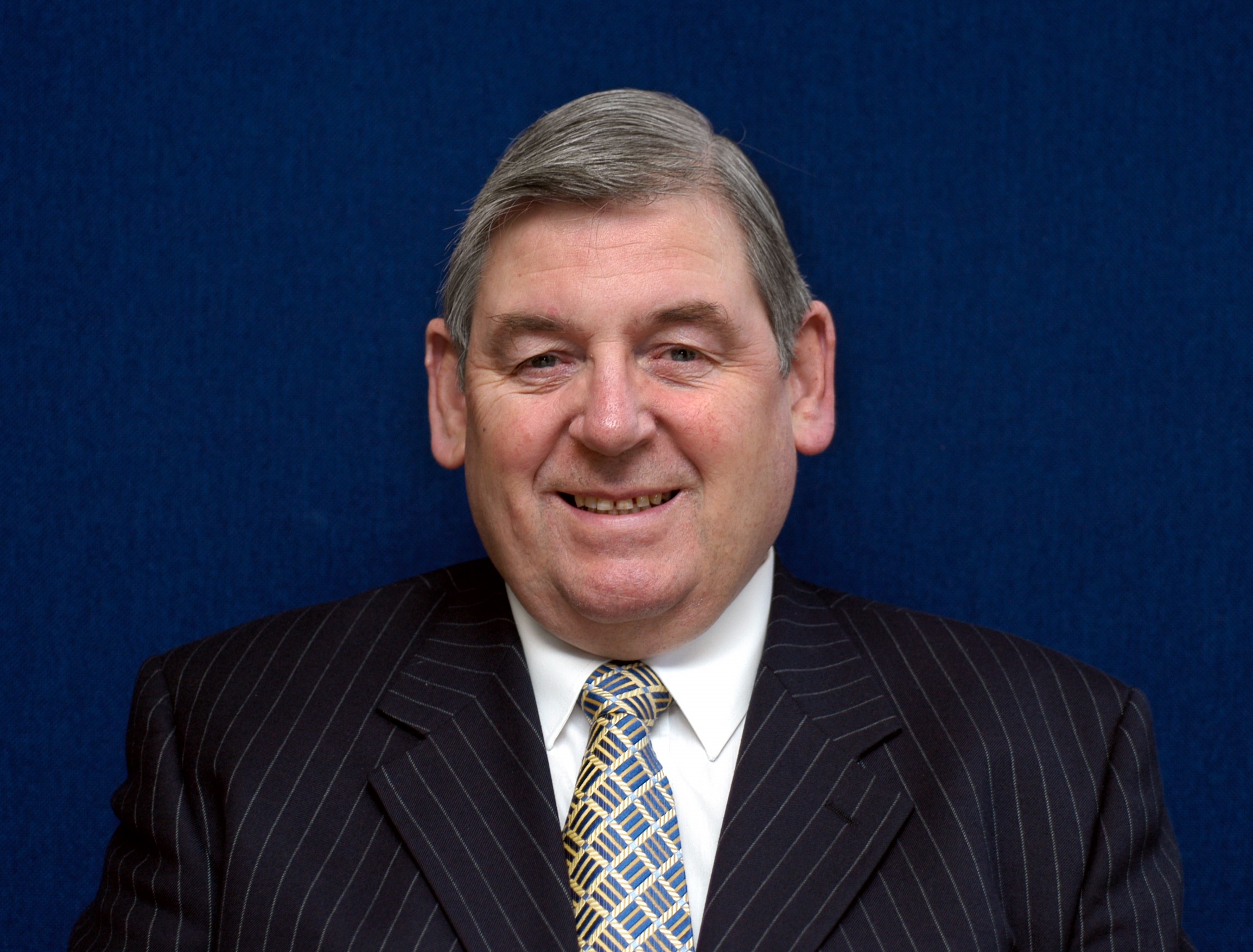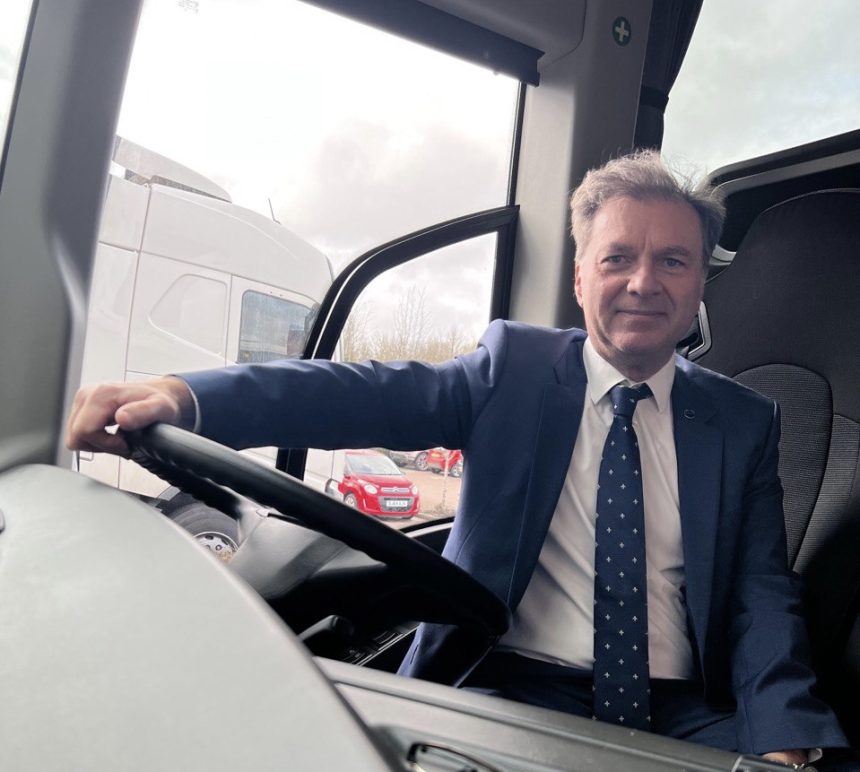UKCOA had its annual conference on 4 March. Held again at Volvo Group’s corporate office in Warwick, this year the subject was ‘challenges and opportunities for the coach industry over the next 10 years’. Seminars addressed the market development of coach drivetrains, autonomous vehicles, manufacturing, driver training, and more.

Route to zero dominates day
As might be expected of the day’s theme, the conference was dominated by topics such as funding, future fuels and drivetrains, of which many questions remain.
In an opening address, Volvo Buses Managing Director in the UK and Ireland Domenico Bondi put those questions to the floor, asking the operators present what they felt was necessary for the successful delivery of a battery-electric coach.
In summary, a quadripartite approach is required: Infrastructure, range, capacity, and funding must come together to make an attractive package.
Lingering particularly on the disparity of funding supplied to coach and bus, Domenico stressed the importance of small family businesses making their voices heard at both a local and national level to redress that balance.
Presentations by Zemo Partnership highlighted that lack of grant funding in England and Wales and the limited range of zero-emission vehicle models as a main inhibitor of their uptake. Claire Haigh, Executive Director, revealed how the organisation plans to address this with the Council for Net Zero Transport, which will provide a focal point for the UK’s transition through to 2050.
Chaired by Lord Deben, former UK Environment Secretary and Chair of the Climate Change Committee between 20212-2023, the Council will provide an independent forum to oversee the development of the partnership’s ‘delivery roadmap’ for net-zero transport, which will guide its activities over the coming years. A coaches and buses working group will be part of the Council, and key issues have already been identified. They include the aforementioned limited options on the market, a lack of available charging infrastructure, and the need for a wider conversation with HVO suppliers as to the viability of low-carbon fuels.
By June 2024, the Council hopes to have discussed key points in a draft delivery roadmap, with priorities for the new government decided by 2024 and addressed in 2025/2026. A parliamentary event will coincide with the roadmap’s publication.
Progress underway

Still missing from the equation is energy supply. Zemo warns of a severely constrained electricity grid and notes long delays in accessing power — 12-18 month lead times are typical. Land lease constraints and proximity to power are further challenges for depots and parking sites, and the Partnership warns that the problem is likely to get worse before it gets better in the absence of changes to energy generation.
There is good news. Ofgem’s Access and Forward-Looking Charges Significant Code Review, which hopes to ensure that electricity networks are used efficiently and flexibly, came into effect in April 2023, while National Grid ESO’s new “First Ready, First Connected” approach hopes to free up the queue for connections with the removal of so-called ‘zombie projects’, where grid capacity is reserved but not utilised. Those changes should be implemented by January 2025.
In the meantime, Zemo recommends reaching for the ‘low-hanging fruit’: By looking at what services can be achieved today, and following in the footsteps of the bus industry, operating realistic mileages with the technology available. Sharing assets will be a major part of a holistic industry approach, and is yet to be explored to a large extent.
Repowering in particular was pushed as having significant well-to-wheel greenhouse gas savings earlier than if new zero-emission vehicles are used.
But addressing thoughts by one operator that feels “the objective is still far ahead of the reality”, Zemo acknowledges the need for a near-term solution for emissions abatement. That is why HVO as a drop-in fuel is still touted as an immediate solution. Described by Tim as the “real silver bullet,” infrastructure and fuel costs remain difficult, but Zemo points to its renewable fuels assurance scheme to address some of those issues.
Multifaceted issues
UKCOA’s conference also addressed regulatory developments around autonomous vehicles, covered in a session by Ian Jones and James Backhouse, while James Howells of Don’t Travel Empty provided guidance on succession planning amid consolidation currently taking place within the sector.
UKCOA Director Andy Palmer offered an update on progress of the Department for Work and Pensions-funded UKCOA Driver Academy, which, despite being “a little bit slow, and a little bit painful” has shown optimistic results with a high standard of candidates from all walks of life. A driving academy checklist has now been drafted and a ‘lessons learned’ exercise will follow to review the process and ensure that value for money comes from any repeat schemes. UKCOA has asked for an equivalent scheme to be delivered in Scotland.
UKCOA Membership and Administration Officer Laura Li gave on update on the organisation’s Women in Bus and Coach (WiBC) sub-group, which has now had its first meetings. UKCOA is keen to expand coach sector representation in WiBC, and an anonymous survey is anticipated which will look to understand what the sector does well and where improvements are needed.

Coach advocacy to increase
Stephen Telling, UKCOA President, reflects positively on this year’s conference, highlighting strong calls for government funding to support the coach sector while urging more involvement and greater membership.
“It was a positive day and the calibre of speakers was excellent,” he says. “The passion that came out was amazing. As has been said, the industry is not against any change, but it can’t be expected to just fund it out of its own resources all the time. There needs to be government support like is given to every other form of road transport.”
Stephen highlights how UKCOA hopes to strengthen its role in that advocacy. It plans to increase membership and continue close work with government bodies. “We will look to grow our association by another 50% this year. The best way we have ever grown membership is by word of mouth from operators about what they can get out of being part of an organisation like this. Here there is only one subject, and it’s 100% coach. We don’t want to talk about anything else.
“We’re here to deliver on coach issues, and coach is an incredibly diverse sector. What we have learned is that DfT and Zemo often don’t realise just where diversity goes. That is one of the biggest challenges, and that’s why we can make this a success.”



























